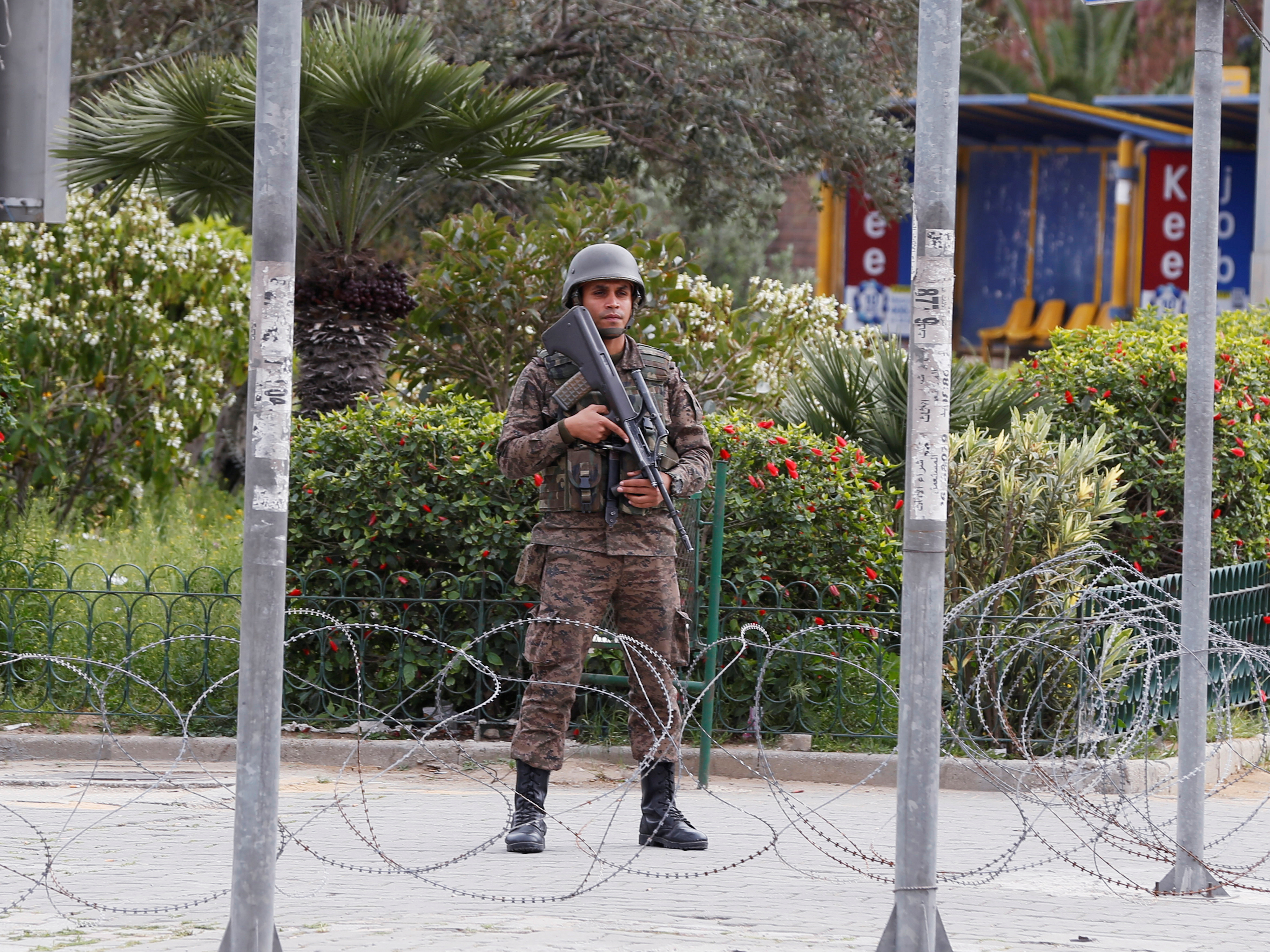- Governments worldwide are taking innovative approaches to slow the spread of the coronavirus – including modifying robots to aid in hospitals.
- Some countries, like Taiwan, Poland, and Singapore, are tracking citizens through geo-location services on mobile phones.
- Other countries, like Tunisia, are imposing harsher lockdowns – including a 6 pm to 6 am public curfew enforced by military.
- Here’s a roundup of some of the ways countries are fighting the virus.
- Visit Business Insider’s homepage for more stories
Taiwan is rolling out an “electronic fence” strategy that utilizes location-tracking services in mobile phones to ensure people who are quarantined stay in their homes.

Foto: People wear face masks to protect against the spread of the coronavirus as they pray at the popular Longshan Temple in Taipei, Taiwan, Thursday, March 12, 2020. Source: Chiang Ying-ying/AP Photo
Source: Reuters
Poland is asking citizens to download a government app called “Home Quarantine,” and respond to the app’s random requests for geo-located selfies when prompted. The police will be alerted if a user fails to comply within 20 minutes.

Foto: A Polish police officer, wearing a protective mask, stands at the border between Germany and Poland on March 23, during coronavirus disease symptoms testing for people returning to Poland. Source: REUTERS/Axel Schmidt/File Photo
Source: Business Insider
South Korea has developed “phone booths” where individuals — even those without symptoms — can get tested for coronavirus in seven minutes through a glass wall, allowing for fast, widespread testing.

Foto: South Korean soldiers wearing protective gear walk on a street in front of Daegu’s city hall after the rapid rise in confirmed cases of the coronavirus on March 2, 2020. Source: REUTERS/Kim Kyung-Hoon
Source: The Straits Times, New York Times
Singapore is using a surveillance app as well, but uses location services to identify whether or not people have been in close proximity to coronavirus patients.

Foto: Commuters wearing masks in precaution of the coronavirus outbreak are pictured in a train during their morning commute in Singapore February 18, 2020. Source: REUTERS/Edgar Su
Source: Business Insider, Business Insider
Singapore also requires all travelers get their temperature taken, along with people entering high trafficked locations like schools and restaurants.

Foto: A man wearing a protective facemask walks past a temperature screening check at Changi International airport in Singapore on February 27, 2020. Source: Roslan Rahman/AFP via Getty Images
Source: STAT
Some hospitals in Thailand are using modified "ninja robots" to help with the treatment of coronavirus patients. The wheeled robots can take patients' temperatures and are equipped with a screen, allowing doctors to video chat with patients and minimize risk of exposure.

Foto: The creation is called a "ninja robot" because of its black coloring. Source: Photo by LILLIAN SUWANRUMPHA/AFP via Getty Images
Source: Business Insider
Italy has tightened its lockdown, even banning "outdoor physical and leisure activities," such as jogging. Those who want to travel for valid work or family-related reasons need police permission.

Foto: A view of the deserted Roman Forum on March 23, after Italy tightens measures to contain the spread of the coronavirus. Source: Remo Casili/Reuters
Source: CNN, Business Insider
Other countries like Tunisia are instituting harsher public curfews. From 6 pm to 6 am each day, police officers and military personnel patrol the streets to ensure no one leaves their homes.

Foto: A soldier stands in downtown Tunis on March 24, after Tunisia's president ordered the army to patrol the streets and enforce lockdowns to stop the spread of coronavirus. Source: Zoubeir Souissi/Reuters
Source: New York Times
Peru has implemented gendered quarantine regulations. Men can leave their homes Mondays, Wednesdays, and Fridays, and women can leave their homes Tuesdays, Thursdays, and Saturdays. Everyone should stay home Sunday. Panama passed similar measures.
Foto: People wearing masks walk through the Lima, Peru airport on March 13.
Source: Business Insider
Dubai went into a two-week lockdown on April 4. Residents are only allowed to leave their homes for essential purposes — and only one family member at a time is allowed to leave.
Foto: A woman walks in an almost empty mall in Dubai amid the outbreak of coronavirus disease on March 22.
Source: US News

